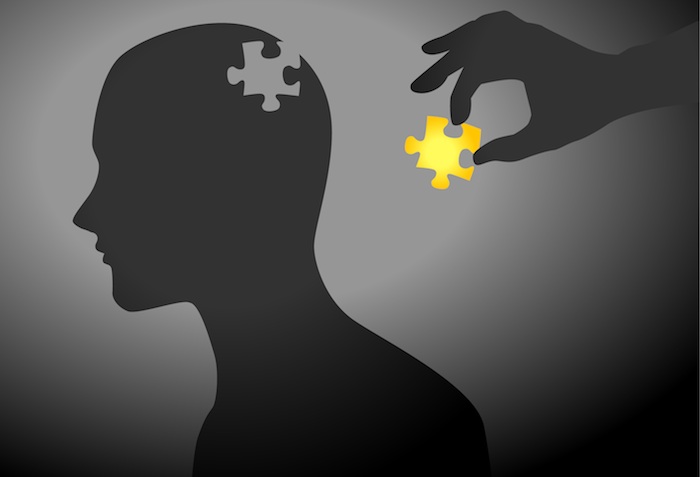This is in Forbes, so I don’t have to write it:
You saw a depressed person today. Probably dozens or hundreds of them.
They drive cars. They perform surgery.
They fly planes — and safely land them.
Of course, that’s been frequently forgotten since last week’s devastating Germanwings tragedy.
Many pundits quickly blamed the horrific plane crash on depression, noting that co-pilot Andreas Lubitz — who took control of the Germanwings airliner and steadily, deliberately flew it and his 149 fellow passengers into the Alps — was reportedly treated for depression and possessed a supply of antidepressants.
The argument came from know-nothing pundits like Piers Morgan. “Depressed pilots on medication for mental illness should not be flying passenger planes,” he declared. If they’re not pulled from the skies, he added, “it could be any one of us next.”
The supposed link was blared across European newspaper headlines, too.
Even the experts weren’t sure.
“Should a depressed pilot be allowed to fly?” wrote Dr. John Grohol, the founder & CEO of Psych Central.
“I’m not sure someone who has a lot of responsibility should be going into work on days where they’re dealing with this kind of emotional upset or sadness.”
On one count, Grohol’s right: there do need to be some basic protections. (That’s a key reason why the FAA has been incredibly restrictive when letting pilots return from treatment for depression, as Forbes writer David Kroll notes.)
And there is a possible link between depression and violence, at least in some cases.
For example, a recent Oxford University study reviewed 50,000 Swedish citizens diagnosed with depression, concluding that people who were diagnosed with depression tended to commit more violent crimes too.
“Our findings suggest that the odds of violent crime are elevated two to three fold after adjustment for familial, socioeconomic, and individual factors,” the researchers wrote in TheLancet Psychiatry in February.
But blaming a person’s depression for his evil acts is ridiculous.
For instance, the Oxford researchers noted that when accounting for other factors — like a previous history of violence, substance abuse, or psychosis — the elevated rate of violence among depressed was notably smaller. And it’s possible that “depression” was over-diagnosed in these people, too.
Mental health experts further stress: Depressed people may be suicidal, but almost never homicidal. The suicide rate in the United States is roughly double that of the homicide rate.
That’s why one of the most important public health efforts of the past few decades has been the effort to de-stigmatize depression — especially because it’s so widespread. Depression strikes up to 20% of Americans across their lifetimes, the Anxiety Disorders Association of America has found.
For the moment, depression is seen as a debilitating, but not disabling condition. “Depression made me do it” isn’t an acceptable excuse for doing a poor job at work, and can’t get you out of a legal bind.
And it doesn’t explain what happened in the case of Germanwings, as Lubitz horribly plunged a plane of screaming passengers into the Alps, acting with chilling evil.
If you believe the tale told by an alleged ex-girlfriend, the plane crash was chillingly planned for months; Lubitz supposedly wanted the world to know his name.
“I don’t know what that is,” psychiatrist Anne Skomorowsky wrote at Slate, “but it’s not depression.”
Ask one of the 10 million-plus Americans who are seriously depressed at any given time. The bravest among them will admit: Depression is devastating. It makes you self-loathing, and lays you low.
But it doesn’t make you a murderer.
See also: “Would We Be ‘Blaming’ Cancer for the Deaths of Those People Who Perished in the Alps?” at HuffPo
I would add that we shouldn’t blame bipolar disorder either. That is being bandied about as the culprit because he was prescribed strong SSRIs and anti-psychotic medicine.
Don’t get me wrong… I think it is clear that he suffered from some mental illness. He may have had bipolar disorder or depression, but these would only explain the suicide, not the 149 homicides. Some have suggested narcissistic personality disorder, which is characterized by (among other things) indifference toward others and grandiosity (Lubitz reportedly said he wanted to “change the system”). Perhaps that is true.
But the danger here is linking his illness to the tragedy. I know people who have struggle with depression. I know people who have been diagnosed bipolar. And people who have NPD/borderline. None of them are likely to become homicidal. This tragic event, like some school shootings, could become a good teaching moment for mental illness — to explain both the frequency and severity and the wide range of problems it causes (homicide being extremely rare) But instead, the media focus will merely add to the already-existing stigma of mental illness, causing fewer people to seek treatment, or deny their illness altogether. And that would add to the tragedy.

